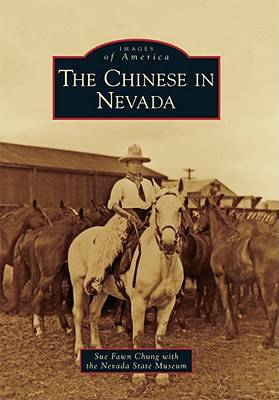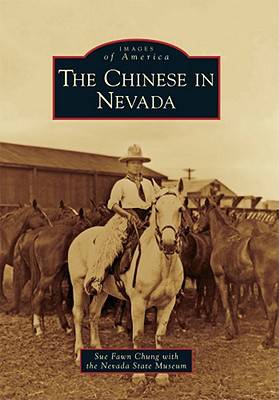
- Afhalen na 1 uur in een winkel met voorraad
- Gratis thuislevering in België vanaf € 30
- Ruim aanbod met 7 miljoen producten
- Afhalen na 1 uur in een winkel met voorraad
- Gratis thuislevering in België vanaf € 30
- Ruim aanbod met 7 miljoen producten
Zoeken
€ 34,95
+ 69 punten
Omschrijving
When the Chinese were asked to help dig irrigation ditches in the 1850s in Genoa and Dayton, Nevada, no one imagined that they would constitute almost nine percent of the state's population by 1880. Although many were attracted by mining prospects, the ability to own land, and work in railroad construction projects, they held a wide variety of jobs, including ranching, sheepherding, logging, medicine, merchandising, and gaming. Their restaurants and laundries could be found throughout the state. The children became acculturated because the state did not require them to attend segregated schools. Federal and state anti-Chinese legislation had a devastating effect upon the population after 1890, but the repeal of the Chinese Exclusion Act in 1943 and other immigration laws brought newcomers who added to the growth of Chinese Americans. The postwar period saw new opportunities opening up that allowed their leaders to be recognized for their contributions to their community and the state.
Specificaties
Betrokkenen
- Auteur(s):
- Uitgeverij:
Inhoud
- Aantal bladzijden:
- 128
- Taal:
- Engels
- Reeks:
Eigenschappen
- Productcode (EAN):
- 9780738574943
- Verschijningsdatum:
- 18/07/2011
- Uitvoering:
- Paperback
- Formaat:
- Trade paperback (VS)
- Afmetingen:
- 167 mm x 233 mm
- Gewicht:
- 308 g

Alleen bij Standaard Boekhandel
+ 69 punten op je klantenkaart van Standaard Boekhandel
Beoordelingen
We publiceren alleen reviews die voldoen aan de voorwaarden voor reviews. Bekijk onze voorwaarden voor reviews.







